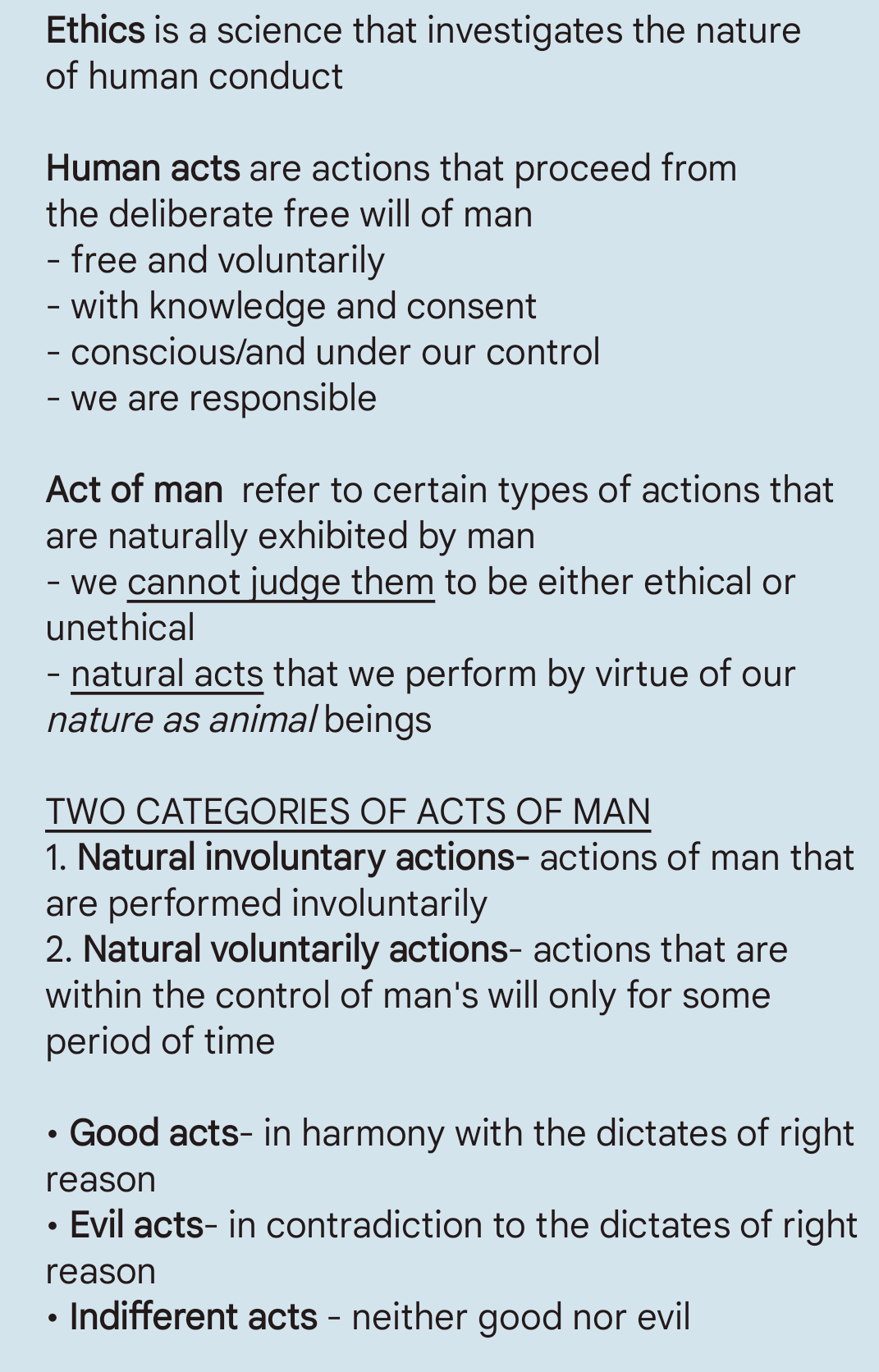What is the difference between human acts and acts of man in ethics?

Understand the Problem
The text presents an overview of ethics, distinguishing between human acts and acts of man, as well as explaining the two categories of acts of man. It seeks to clarify concepts related to morality, responsibility, and ethical behavior.
Answer
Human acts involve conscious decision, free will, and ethical responsibility. Acts of man are natural, often involuntary, behaviors without moral judgment.
Human acts are actions performed consciously, with knowledge and consent, and involve free will, making the agent responsible for these actions. Acts of man are naturally exhibited actions that are either involuntary or voluntary but do not have ethical value as they occur without deliberate choice.
Answer for screen readers
Human acts are actions performed consciously, with knowledge and consent, and involve free will, making the agent responsible for these actions. Acts of man are naturally exhibited actions that are either involuntary or voluntary but do not have ethical value as they occur without deliberate choice.
More Information
Human acts can be morally judged because they are done with deliberation and free will, while acts of man are natural and often involuntary, meaning they can't be judged as morally good or evil.
Tips
A common mistake is to assume all human actions are deliberate and ethical; distinguishing between deliberate, ethical human acts and involuntary acts of man is crucial.
Sources
- Determinants of Human Acts and How They Differ to Acts of Man - Scribd - scribd.com
- Human Act versus Act of Man - Studocu - studocu.com
- Difference Between Human Acts and Acts of Man - Course Hero - coursehero.com
AI-generated content may contain errors. Please verify critical information